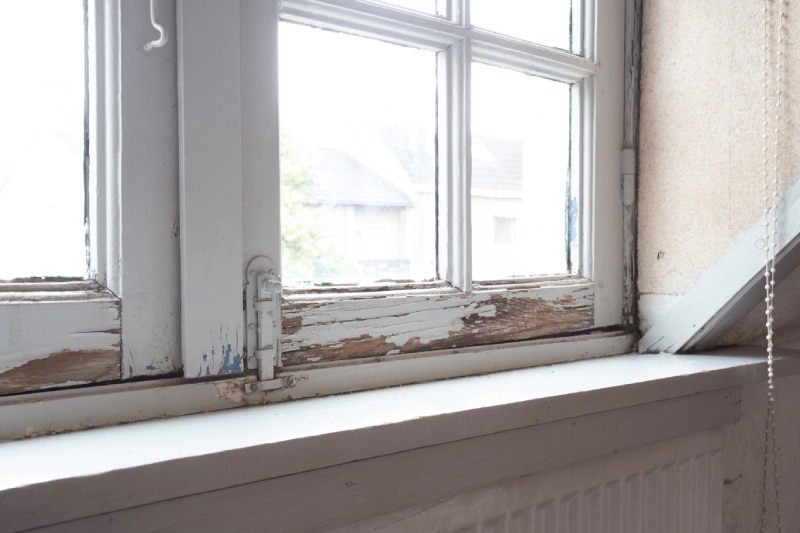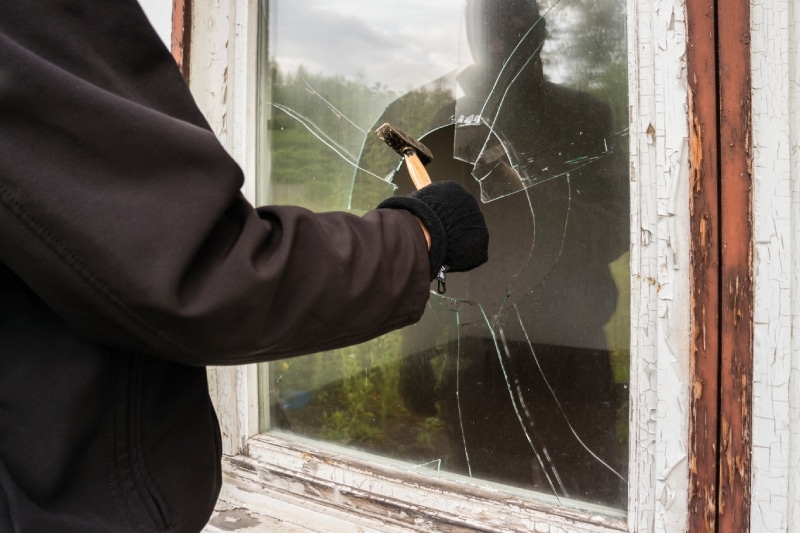October 06, 2020
Ignoring these signs your windows need to be replaced could cost you more in the long run.
When you spot the first small crack or broken seal in one of your windows, it’s easy to ignore. After all, you can deal with it later, right?
But soon, “later” turns into much later. And delaying window repairs or replacements can be costly. That tiny broken window seal may now be allowing for water damage, skyrocketing utility bills, and damage not only to the window itself — but the frame and walls around it.
If you’re a chronic home maintenance procrastinator, you’re far from alone. Most people don’t pay very much attention to the state of their windows unless disaster strikes. Unfortunately, that means most people also pay far more for window replacements than they need to for additional fixes and broken parts.
If you’re wondering whether it’s time to replace your windows, keep reading. We’ll uncover the most common signs you might need a window replacement, analyze the costs of replacement vs. waiting, and answer some of the most frequently asked questions about window replacement.




7 Signs You Need New Windows
Here are seven red flags that your windows may need to be replaced:1. You’re experiencing drafts.
If you notice drafty areas in your home originating from old or poorly installed windows, it’s a sign that you may need to call in an expert for a replacement or repair. Especially if you live in an area affected by heavy winters, drafty windows can pose health and safety risks. More often than not, you’ll want to address drafty windows ASAP. Drafts don’t improve naturally—so if you notice one, it’s likely only going to get worse. Additionally, drafts force your heating systems to work harder and use more gas or electricity, meaning higher utility bills over the long run. In these cases, it’s usually best to spring for the replacement—though there are DIY solutions for drafty windows if you’re up to the task.2. You notice unusual condensation.
While window condensation occurs naturally under certain conditions, condensation between your window panes is a serious problem. At the very least, condensation indicates a break in the seals between your panes that could lead to fogginess and decreased visibility. Unfortunately, condensation can also be the start of a bigger problem. Broken seals and cracked frames often lead to leaks and water damage. Water damage can lead to structural issues in your walls, not to mention dangerous black mold. There are certainly ways to get rid of window condensation on your own, but when in doubt, it’s frequently worth the extra cost to hire a professional.3. Your window glass is hot or cold to the touch.
Depending on the type of windows you have, the temperature of those windows can be a strong indicator that you might need a replacement. Modern, multi-pane windows with strong seals should be room temperature to the touch. If you have double- or triple-paned windows and you can feel the outside temperature, there’s a chance that your seals aren’t functioning the way they should be. And if you’re noticing a significant problem with your window insulation, it’s time to call an expert for an inspection.4. You notice cracked or broken frames and panes.
Cracked or broken frames and/or glass panes require immediate replacement. If you can see the damage on your window, you’re already at risk for broken glass, elemental damage, furniture damage, increased energy bills to compensate for drafts, and potential foundational stress. At the very least, cracks and breaks make you vulnerable to leaky windows, which cause all sorts of additional problems.5. Your windows are getting old.
Despite what ancient European castles might have you believe, windows don’t last forever. The average window glass lasts around 20 years, while the average window frame (depending on the material) lasts about 50 years. If your windows are reaching the end of their recommended lifespan, it’s definitely time to at least get them inspected. If you’re not sure how old your windows are, you can always call in an expert to give you an estimate. Your realtor should also have access to this information if you’re in the process of buying your home.6. Your windows are difficult to operate.
If your window fights you every time you go to open or close it, you might need to invest in a replacement. Stuck windows can sometimes indicate deeper problems—such as a broken frame—and should be addressed as soon as possible. That said, if you do an inspection and don’t find any other issues with the window, it might just be a difficult window.7. Your windows have poor energy efficiency
Poor energy efficiency is enough to warrant a window replacement in the name of the environment alone—but there’s also a strong financial motivation. If your windows aren’t providing a barrier to help regulate internal home temperature the way they’re supposed to, they strain your heating and cooling systems. As a result, your energy bills skyrocket during extreme seasonal temperatures as your systems fight against subpar window mechanisms.
What are the costs of delaying window replacement?
While your average window replacement will cost anywhere from $250 - $1,200 depending on the type, size, materials, and style, the consequences of delaying window replacement can be even costlier. So is replacement worth it, purely from a cost-benefit analysis? Let’s explore the financial ramifications of ignoring your troublesome windows.Skyrocketing Utility Bills
If you’re plagued by high energy bills due to old or broken windows, it’s time to replace them. When your windows aren’t regulating the temperature in your home, then your heating and cooling systems end up working overtime to cover the difference. Replacement windows will likely cost more than a single energy bill, but in the long run, you’re looking at far more money wasted on excessive heating and cooling than on a simple replacement that could save you up to $500 per year.Expensive Mold Removal
Most of us know the health dangers of mold, but did you know the financial ones as well? Mold remediation starts at an average of $2,500 and can skyrocket up to $30,000 depending on the severity and the cost of your contractor. There are home remedies to remove mild mold cases, but if you’re noticing a consistent problem, it’s best to replace the window before you need to de-mold the entire home.Decreased Home Value
Old windows can be stunningly beautiful. However, when you’re trying to sell your house, they can hurt the value of your home. If you’re looking to sell your home in the near future, window replacements can go a long way to upping your asking price. Additionally, if you wait too long to update your windows, you might find yourself shelling out at resale time anyway. Unless your buyers are looking for a fixer-upper, chances are your realtor’s going to advise a few updates. And wouldn’t you rather enjoy new windows now rather than pay for someone else to enjoy them down the line?Home Security Issues
Old windows, like old locks, aren’t always the best at keeping your home safe. One of the perks of contemporary windows is that many of them can be hooked up to a security system and reinforced—keeping out any burglars or home invaders. As the average stolen value of burglaries in 2020 was nearly $3,000, it makes sense to upgrade your windows. Better safe than sorry.
